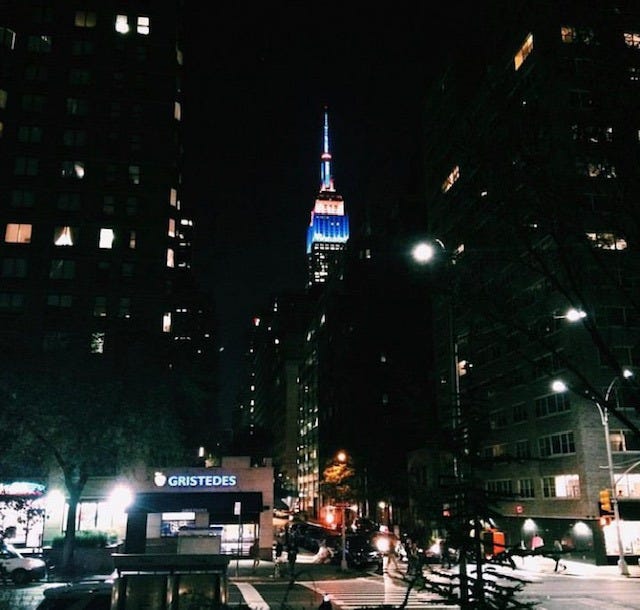Deleted scenes
2015 anno Domini
We still had a receptionist stationed by the elevator bank, to greet the odd visitor or interview candidate, to hang their coats in the closet none of us used. Mostly she ferried packages. Twice a day the UPS guy would back his way out of the elevator, hand truck spilling with boxes, and the receptionist would hand them off, one by one, to the sellers and account managers seated across the fifteenth floor. There were so many deliveries, she’d map her route through the open floor plan in advance: Sales Ops in the north corner, Customer Success in the middle, Product Marketing along the window facing 32nd Street.
Ostensibly the packages were routed to the office so they wouldn’t get swiped from doorsteps, but your coworkers would unwrap them like Christmas gifts — sweaters, tunics, expensive boots — and try them on, and model them between the kitchenette and the glass-walled conference rooms where they took calls and doodled on whiteboards. A few hours later they’d re-wrap their treasures, re-seal the packages, and leave them with the outgoing mail. The fit was wrong, or the color was off, but really our comp was half commission and the app bubble had burst.
When it was bad — really bad, after a layoff or when the cofounders yelled at each other like there weren’t sixty other people there in the barely-refurbished loft — we’d joke that, well, we might be pulling twelve-hour days, but we had a concierge for eight of them. We were all the same amount of broke, but our spending habits diverged. The women, subsisting on bananas and Clif bars from the kitchenette, drank cocktails in the East Village; the guys bought groceries at Fairway and never went out.
So you’d be sitting there beneath the exposed wiring and insulation, emails on one screen, spreadsheets on the other, facing in the same direction for hours on end, buffeted against the cold and the shitty ventilation. You’d drink coffee for something to do, quit it cold turkey, then start again a few months later just to mark time. On cloudy afternoons everybody would stand and drift into a corner to watch the sun set across the Hudson, these skull-fucking sunsets, the entire West Side glinting like tinsel, and you could crack a beer, but you still had another four hours of work to do. Only then, finally, you’d hoof it back to the apartment you shared with strangers opposite the FDR.
Moving east, the Midtown industry — your industry, everyone’s industry, widgets, plug-ins, clickbait and made-up numbers — gave way to housing, bars, and hospitals. From the roof of your building you could glimpse the East River piers, monuments to shipping and manufacturing and whatever else this city and country used to do, fallen into disuse, some polished into doomed tourist attractions. No sunsets on this side, only lengthening shadows. Back in your bedroom you’d poke around different websites, on a different laptop, and see what your coworkers were really like. Proximity made everyone handsome; you knew, or knew of, their siblings by name.
Then you’d find yourself attuned to certain frequencies. A coworker would arrive late, wearing clothes from yesterday. Or her cell phone would buzz and she’d hike across the room to answer it on the fire escape where the part-time H.R. consultant ripped menthols. And she’d return to her desk, upset but trying to hide it, and no one would say anything, but in your mind you’d be like, I see you, I know you play guitar and drank prosecco at your graduation. And she knew you knew that — everybody at the startup knew it, had Liked those same photos — but you couldn’t confess your mutual knowledge, so you’d go back to answering emails. Eventually you’d get tired of it, or it got tired of you, and you’d hunt around for a re-do. You’d find another company, or another city, and do the same shit. Drew took the LSAT, Jessie became a dietician, I don’t know what the rest did but it’d be easy to find out.


